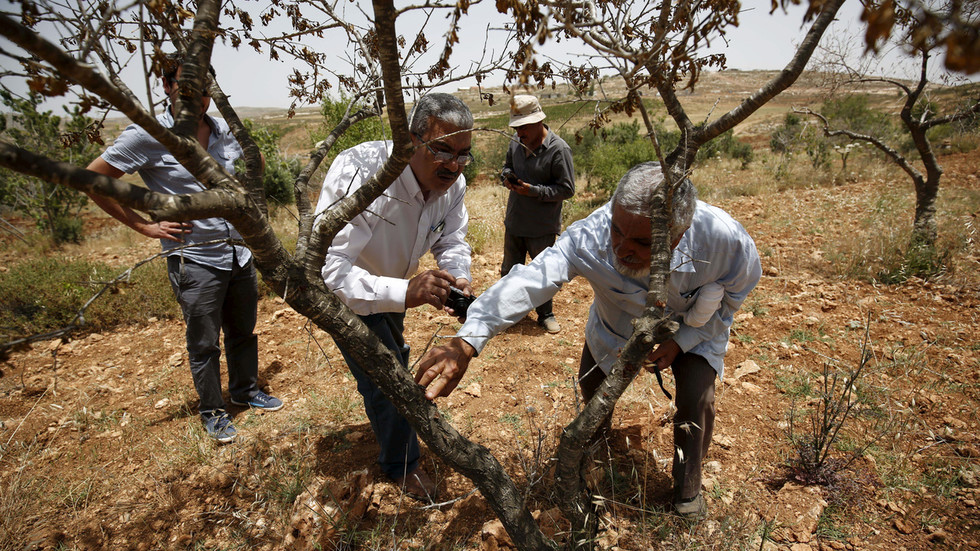Alwaght- Israeli regime has further restricted Palestinian farmers' access to their land that is ended up on the wrong side of occupied West Bank separation wall, Russia Today reported.
Palestinians see it as part of a creeping theft of their property.
In the early 2000s, Tel Aviv began the construction of a long barrier between itself and the West Bank, saying it was a necessary temporary measure in response to the Second Intifada. Two decades on, the wall is still in place, and its impact on the life of Palestinian civilians is increasingly harsh.
Large sections of the separation wall have been built across land seized from Palestinian farmers, trapping some of their lots on the Israeli side. The owners now have to receive permits from Israeli regime’s Civil Administration in the occupied West Bank to gain access to tend to the land. The rules on what kind of access can be granted have been recently tightened, the newspaper Haaretz reported.
The changes include a limit on how many times a farmer can travel through a wall checkpoint each year, depending on the type of produce he grows on his land. The quota is 40 times a year for olives, 50 times for figs, 30 for barley, and 220 for tomatoes or strawberries.
Once exhausted, a new request for access will need to be obtained, provided the Israeli officials agree there is a need for extending the quota, which is not a certainty. In fact, the rejection rate for entry permits has jumped to 72 percent in 2018 from just 24 percent four years earlier, the newspaper noted.
Pretty restrictive limitations for land access existed even before the latest change, based on factors such as seasons. For example, olive growers are given a month to collect their harvest – regardless of whether a particular family has enough labor to complete the job in the allocated period of time. Some farmers have to take lengthy trips to the nearest gate before backtracking on the other side, whereas they had only to walk a short direct path before the erection of the wall.
There are other questionable practices, like dividing a family plot between members and then denying access rights because those individual plots are deemed too small for agricultural purposes.
Many Palestinians see the Israeli policies as nothing but a ploy meant to force them to abandon their lands, which would then be cultivated by Israeli settlers at will.



























